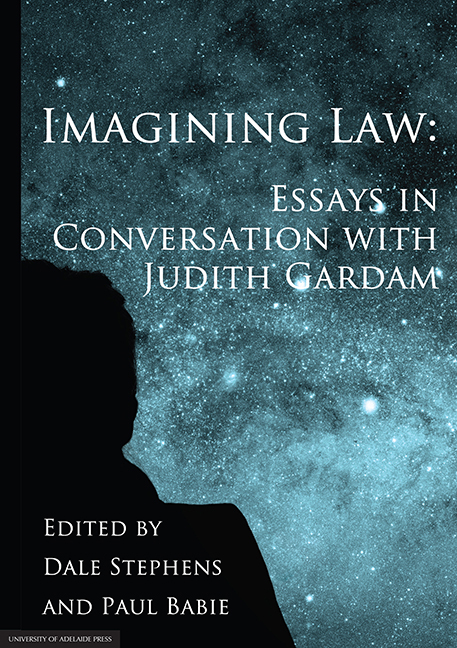Book contents
- Frontmatter
- Dedication
- Contents
- List of Contributors
- Acknowledgements
- 1 Introduction: Seeing Further over the Horizon – A World of Limitless Possibilities
- Part I
- Part II
- Part III
- Gender and Armed Conflict
- Gender and Feminist Concepts
- 10 Women's Role in Reconstituting the Post-Conflict State
- 11 Law under the Influence of Religion: The Limiting of Birth and Death Decisions
- Theoretical Issues
- A Selected Bibliography
- Table of Cases and Materials
- Selected Index
11 - Law under the Influence of Religion: The Limiting of Birth and Death Decisions
from Gender and Feminist Concepts
Published online by Cambridge University Press: 05 August 2017
- Frontmatter
- Dedication
- Contents
- List of Contributors
- Acknowledgements
- 1 Introduction: Seeing Further over the Horizon – A World of Limitless Possibilities
- Part I
- Part II
- Part III
- Gender and Armed Conflict
- Gender and Feminist Concepts
- 10 Women's Role in Reconstituting the Post-Conflict State
- 11 Law under the Influence of Religion: The Limiting of Birth and Death Decisions
- Theoretical Issues
- A Selected Bibliography
- Table of Cases and Materials
- Selected Index
Summary
PREFACE
This chapter is written in the spirit of Judith's scholarship and style of inquiry. It endeavours to provoke discussion; it is polemical but also indicates the manner in which strong argument might be supported by measured research; it is written in a spirit of rationalism and is against the forces of irrationalism, especially as they undermine the interests of two vulnerable groups: women who wish to terminate a pregnancy and those who are extremely ill and wish to end their lives. Its arguments and concerns have an international reach. It takes on a large subject, which ultimately affects us all. And it employs a slightly experimental approach, as Judith has done in her own work.
In ‘An Alien's Encounter with the Law of Armed Conflict’, Judith responded creatively to a request to characterise the law of armed conflict in terms of the sex of its subjects. She supplied an account of this body of law from the point of view of an alien, trying to make sense of these regulations as if they were the rules of a ghastly game, but without prior knowledge of their purposes or intended subjects. What would this creature from another world make of the people conjured up by these rules? Judith thus disclosed the presuppositions and biases of humanitarian law, and its understandings of its male and female subjects: the dominant male players, or combatants, with their natural affinity for arms and their peculiar codes of honour, and the preyed-upon female players, beings of natural modesty and weakness.
My chapter borrows from Judith and her exercise with the alien. It creates two distinct viewing points from which to examine afresh another body of law: the medico-legal rules governing basic birth and death decisions. From quite a high perch (though perhaps not from the great heights of the alien), I examine the broad diplomatic and rhetorical moves and strategies of the main protagonists in the legal/ religious debates which have shaped these laws. I consider also how these protagonists have themselves manipulated and played with perspective and point of view in order to achieve their ends.
- Type
- Chapter
- Information
- Imagining LawEssays in Conversation with Judith Gardam, pp. 243 - 260Publisher: The University of Adelaide PressPrint publication year: 2016



